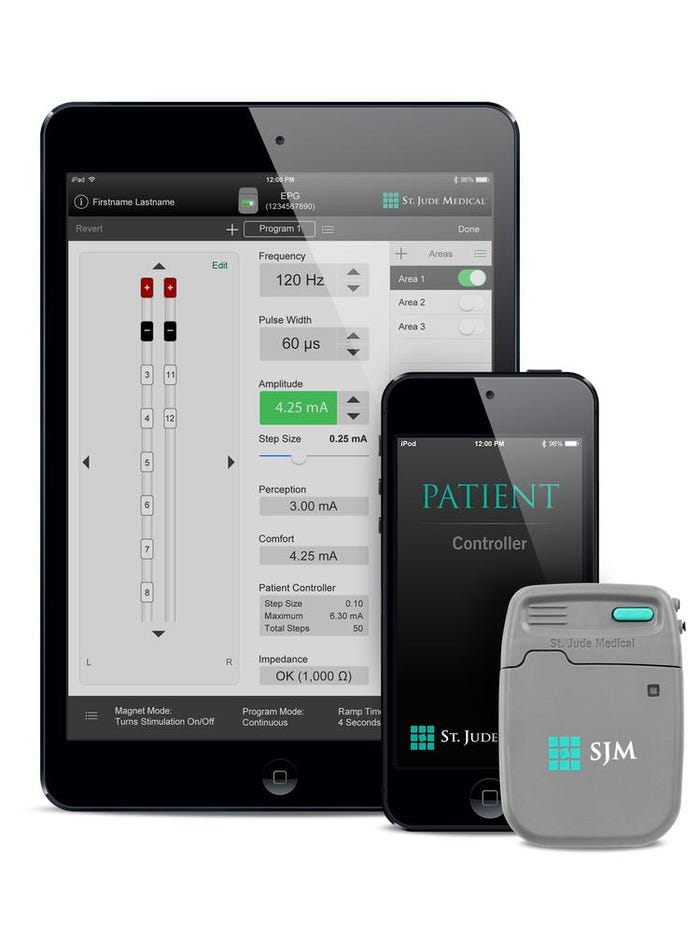iPod Compatible St. Jude Device Hits European Market
June 5, 2015
Patients considering an implant to control chronic spinal pain can test its efficacy first using a new St. Jude Medical system that employs Apple devices and Bluetooth technology.
Nancy Crotti
|
The Invisible Trial technology from St. Jude enables patients to control their neurostimulator with an iPod or iPad mini app. |
St. Jude Medical's Invisible Trial System just won the CE mark in Europe, the company said in a statement. The system's external pulse generator (EPG) uses Bluetooth technology to communicate between the patient's iPad mini or iPod touch controller and the stimulation system, which is small enough to be worn under clothing (hence the "invisible" moniker).
Physicians set the programming parameters on an iPad mini tablet, which displays usage data from the EPG and allows the physician to print or email the data in PDF format.
The idea is to help patients focus on pain relief rather than on a cumbersome, uncomfortable cable that can dislodge the lead that delivers electrical pulses to spinal nerves, said Stefan Schu, MD specialist for neurosurgery and senior physician for neuromodulation at the Sana Clinic in Duisburg, Germany, in the company's statement.
The new system can deliver traditional and "Burst" stimulation modes. Burst stimulation has been demonstrated to reduce the sensations of burning, prickling, itching, or tingling known as paresthesia, and may help patients who have not responded to traditional stimulation, according to the company.
Incidentally, the startup Nevro recently won FDA approval for a device that is said to treat chronic pain without causing paresthesia.
The St. Jude system is the latest to employ wireless technology to communicate between patient devices, physicians, and technicians.
Smart devices are becoming used more commonly to facilitate this. A program in New Jersey is tracking breast cancer patients' treatment side effects, sleep information, physical activity levels, and patient mood using Apple watches. The FDA granted AliveCor's smartphone-based heart monitor over-the-counter clearance last year. AliveCor uses U.S. board-certified cardiologists and U.S.-based cardiac technicians to analyze patients' data over the cloud to ensure that only important information and trends are carefully tracked. Worrisome data can be shared with the patient's personal physician.
mHealth economics reported that last year there were over 100,000 medical and health apps on Apple and Google's app stores. Google has reported that health and fitness have been the fastest growing category.
Learn more about the medical device industry at MD&M East in New York City, June 9-11, 2015. |
About the Author(s)
You May Also Like



